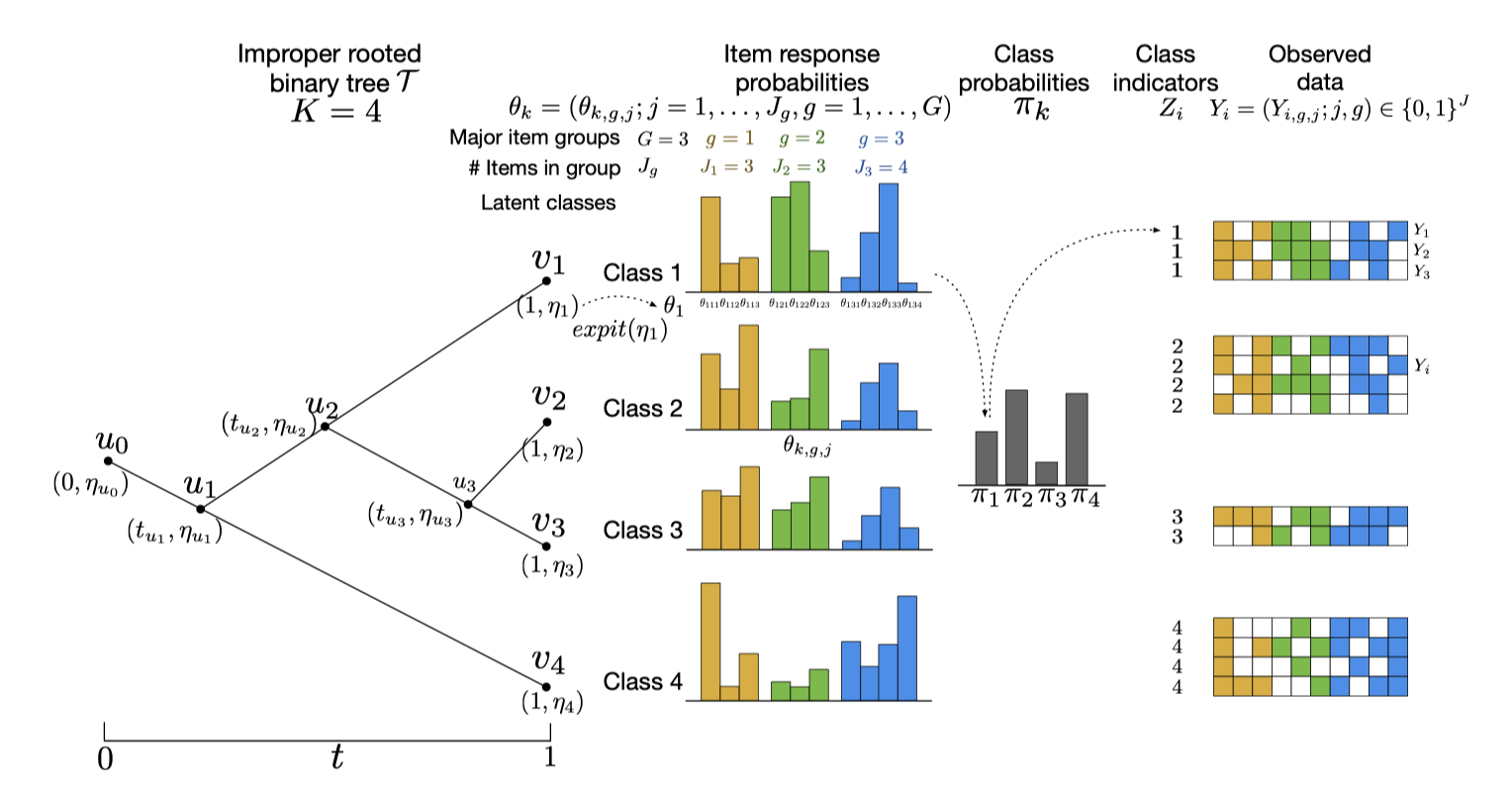Software:
Abstract
Dietary patterns synthesize multiple related diet components, which can be used by nutrition researchers to examine diet-disease relationships. Latent class models (LCMs) have been used to derive dietary patterns from dietary intake assessment, where each class profile represents the probabilities of exposure to a set of diet components. However, LCM-derived dietary patterns can exhibit strong similarities, or weak separation, resulting in numerical and inferential instabilities that challenge scientific interpretation. This issue is exacerbated in small-sized subpopulations. To address these issues, we provide a simple solution that empowers LCMs to improve dietary pattern estimation. We develop a tree-regularized Bayesian LCM that shares statistical strength between dietary patterns to make better estimates using limited data. This is achieved via a Dirichlet diffusion tree process that specifies a prior distribution for the unknown tree over classes. Dietary patterns that share proximity to one another in the tree are shrunk towards ancestral dietary patterns a priori, with the degree of shrinkage varying across pre-specified food groups. Using dietary intake data from the Hispanic Community Health Study/Study of Latinos, we apply the proposed approach to a sample of 496 US adults of South American ethnic background to identify and compare dietary patterns.
Keywords Dirichlet diffusion tree process; Dimension reduction; Tree-structured shrinkage; Model-based clustering; Nutritional epidemiology.
